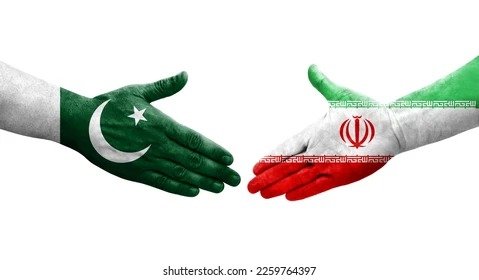Iran has called in a senior Pakistani diplomat in the midst of heightened geopolitical tensions between the two neighboring nations. The Iranian Ministry of Foreign Affairs summoned Pakistan’s charge d’affaires to express its protest against the latter’s recent missile attack. Nasser Kanaani, the spokesperson for the Iranian Ministry of Foreign Affairs, announced that the summons was a response to a precision military operation conducted by Pakistan in Iran’s Siestan-Balochistan province. The Pakistani strikes, aimed at what they termed “terrorist hideouts,” resulted in the death of nine individuals, including three women, four children, and two men without Iranian nationality. Pakistan justified its actions as a response to Iranian missile and drone attacks earlier in the week, targeting bases of the Sunni Baloch terrorist group ‘Jaish al-Adl’ in Pakistan’s Balochistan province.
Following the retaliatory strikes, Pakistan’s Foreign Ministry released a statement reaffirming its respect for the territorial integrity of Iran. Islamabad described Iran as a fraternal nation, expressing its commitment to finding mutually agreed solutions to the ongoing issues.
China subsequently offered to mediate and ease tensions between Iran and Pakistan, urging both nations to exercise restraint and avoid further escalation. Chinese Foreign Ministry spokesperson Mao Ning, however, claimed ignorance of Pakistan’s airstrikes inside Iran but emphasized the importance of handling international relations based on the principles of the UN Charter and international law. Mao stressed the need to respect the sovereignty, independence, and territorial integrity of all countries.
Highlighting the close ties between Pakistan and China, Mao acknowledged that Iran and Pakistan are influential neighbors and expressed hope that both parties would exercise restraint. China offered to play a constructive role in de-escalating the situation, emphasizing its readiness to assist if needed.
The current standoff between Iran and Pakistan coincides with Pakistan grappling with a severe economic crisis. The country’s $350 billion economy faces challenges such as high inflation, substantial fiscal and current account deficits, and a $3 billion International Monetary Fund (IMF) bailout program. The economic woes come amid falling international bonds after Pakistan’s confirmation of conducting airstrikes inside Iran, which followed Tehran’s attacks on bases within Pakistani territory. Despite the tensions, Iran continues to provide electricity to various regions in Pakistan, and unofficial trade, including commodities like Liquified Petroleum Gas and Iranian diesel, persists between the two countries.

















Comments